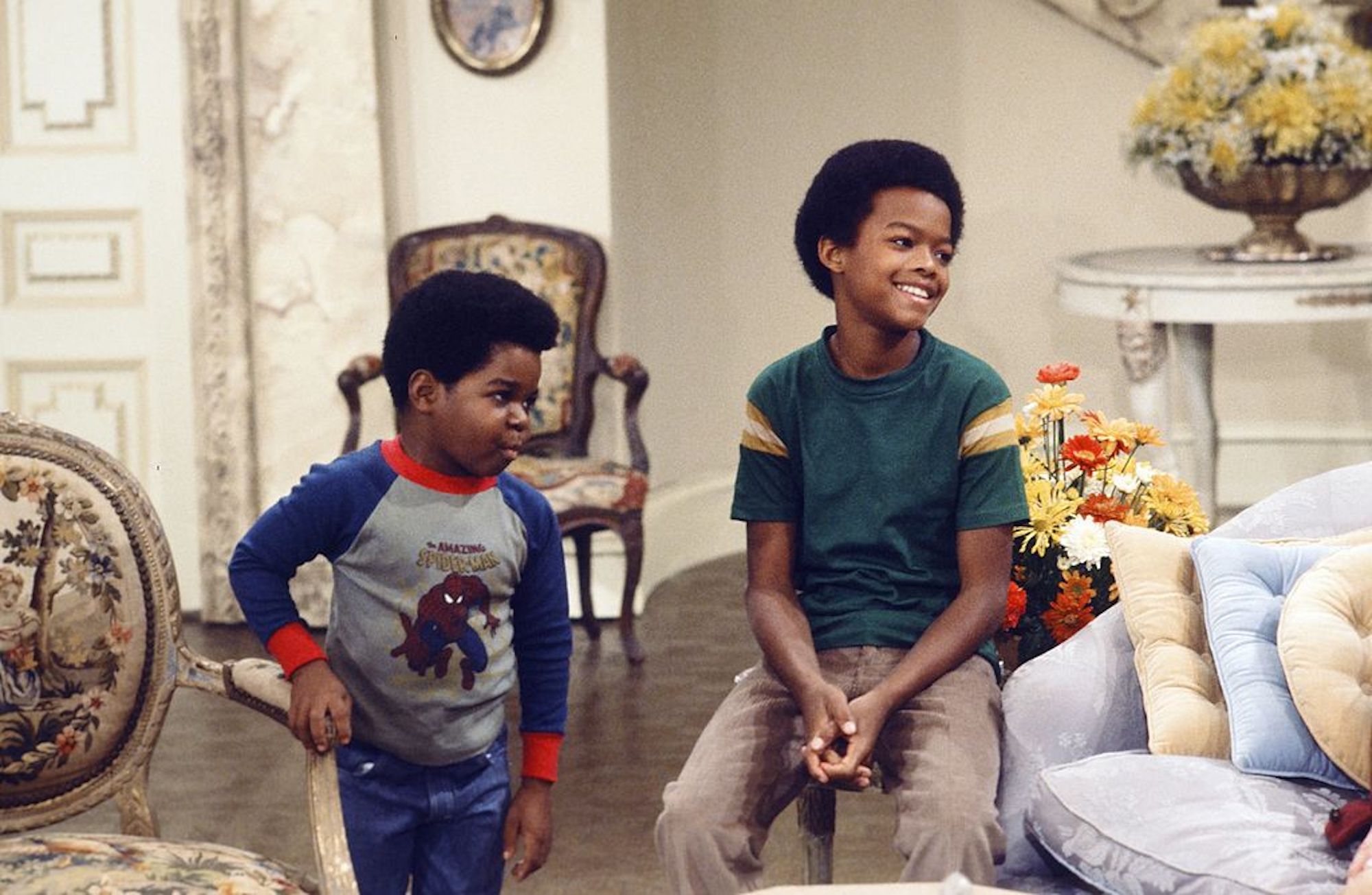‘Diff’rent Strokes’ Wasn’t Afraid to Tackle Serious Topics – and the Risk Paid Off
Television shows have been acting as a conduit for educating the public about social issues for some time. Shows, usually dramas but sometimes comedy, tackle difficult subjects.
Fans will know the format of these episodes. At the end, often times the cast will come on screen out of character to give the audience a message, and maybe provide a hotline to call for support with whatever the issue in the episode is. Boy Meets World and Seventh Heaven became classic examples of this format in the 1990s, but it is actually much older.
According to Mental Floss, Diff’rent Strokes had a ton of “issue” episodes in its day.
‘Diff’rent Strokes’ wasn’t afraid to tackle tough subjects
Originally, Diff’rent Strokes was meant to be a lighthearted show. But five years into it’s eight year run, writers realized Diff’rent Strokes had an opportunity to tackle tougher issues without losing it’s comedic tone. At the time, these were called “Very Special” episodes, and they weren’t new. All in the Family started the trend in the 1970s.
They aired an episode where Edith was assaulted. The typical Very Special episode tackles an issue and teaches a lesson, without alienating viewers by changing the tone of the show.
In 1983, Diff’rent Strokes aired a two party Very Special episode where a sexual predator grooms Arnold.
The episodes were a hit, which led to many more Very Special episodes, including ones tackling bulimia, epilepsy, and alcoholism, among others. In one Very Special episode, the show tackled a subject very personal to actor Gary Coleman.
Some subjects ‘Diff’rent Strokes’ took up were personal

Actor Gary Coleman was a child star. He started acting in commercials, and Diff’rent Strokes cast him in a leading role when he was just 10 year old. Coleman grew up over the course of the show, and was a legal adult when it ended. But Arnold grew up much slower. That’s partially because Coleman didn’t seem to age. He had a health condition which stunted his growth. Coleman never grew taller than 4′ 8″. Still, he didn’t want to play a child forever.
Coleman convinced the show to age Arnold up a little bit towards the end of the show. Eventually Arnold got to go to high school, which gave the show the opportunity to do storylines like Arnold learning to drive, or Arnold dating. In order to explain Arnold’s height, the show gave him the same condition as Coleman had.
In a Very Special episode, Arnold deals with his diagnosis. Although it wasn’t technically an “issue” episode like many of the Very Special episodes, it was very real, and the message was that much more poignant.
The very premise of ‘Diff’rent Strokes’ was serious
One of the reasons Diff’rent Strokes writers may have felt comfortable tackling serious topics was the fact that the show itself was a serious topic. The whole premise of Diff’rent Strokes hinges on a mother’s untimely death, and deep-seated race and class issues in America.
In the show, Willis and Arnold come to live with Mr. Drummond because they are orphaned. Their mother was Mr. Drummond’s housekeeper, and he takes in the two boys.
While the show didn’t necessarily tackle these issues head on, the undercurrent is there. Willis and Arnold are shoved into a world completely different from their own. The three main characters dealing with the culture shock is what creates the show’s comedy, but in reality it is a serious subject.
Willis and Arnold lived just 45 minutes away from Mr. Drummond, yet their lives were so shockingly different that there was enough material for eight years of a television show. Having those issues on display for all of the United States to see was groundbreaking.


